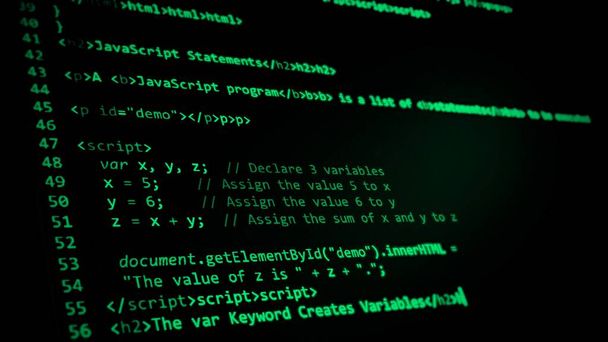Revolutionizing Software Development with AI in DevOps
AI is doubtlessly revolutionizing software development by enhancing delivery speed, accuracy, and efficiency across all stages of the development lifecycle; improving DevOps practices is not an exception. This article explores the key benefits of AI integration into DevOps, its most effective applications, strategies for optimizing workflows, and the challenges organizations may face in implementation.
The blog discusses:
- benefits of using AI in DevOps
- where can you integrate AI
- how to merge it into DevOps
- issues with incorporating
- what’s next for DevOps and AI

Table of Contents
In software development, where innovation has the highest value, AI presents a range of new possibilities for improving software development practices. For organizations that seek to enhance delivery and reliability, AI is a valuable asset that transforms the entire process of software delivery. Integrating AI into DevOps significantly improves speed, accuracy, and overall efficiency. Its emphasis on the automation of various processes and exceptional analytical skills is fundamentally changing the way software teams operate.
This article covers the key benefits of applying AI to DevOps, its most effective applications, strategies for maximizing efficiency, and potential implementation challenges. Additionally, we will provide insight into the future of DevOps and AI.
Table of Contents
Why Integrate AI into DevOps
Incorporating AI into DevOps brings significant advantages by transforming key aspects of the development process. This section explores the key ways in which AI enhances DevOps, driving innovation and ensuring more reliable, faster, and efficient software development.
Enhancing Automation for Repetitive Tasks
AI’s ability to automate daily tasks makes it a valuable asset in DevOps. Code compilation, routine testing, and error diagnosis – all these repetitive tasks are now performed by AI algorithms. This feature does more than just replace manual labor: it enables teams to focus on dealing with more challenging and creative tasks. The time teams would have otherwise spent on mundane tasks is used to foster innovation and develop accelerated and multifunctional software.
Improving Efficiency and Speed in Deployments
Another key benefit of AI in DevOps is a major enhancement of development and deployment productivity. This is possible because of AI’s ability to analyze vast amounts of data in a short time and gain information that would have taken much more time if otherwise acquired by humans. AI excels at prompt pattern detection and prediction of bug location in the software testing phase, enabling preemptive fixes for potential issues, which results in faster development cycles, quicker deployment times, and a more agile and responsive development process.
Increasing Accuracy in Error Detection and Resolution
What makes AI so exceptional at improving accuracy and reliability in DevOps is its unique data processing capabilities. AI systems can analyze huge amounts of information with very high accuracy and few errors, a level of performance that humans can’t achieve. This feature allows AI-driven analysis to detect potential flaws and inconsistencies in code that a human reviewer might simply miss. Another characteristic that makes AI such a powerful tool is its ability to learn from past data and improve over time, therefore ensuring consistent improvement in software’s stability and reliability. Not only is this enhanced reliability crucial for maintaining high software quality, but it is also essential for ensuring customer trust in the highly competitive marketplace.
Key Areas Where AI Can Be Applied in DevOps
Modern software development faces complex challenges and demands for rapid, reliable delivery. AI, particularly through machine learning, offers powerful solutions to address these issues within the DevOps framework. Let’s examine some key areas where AI can make a significant impact.
Continuous Integration/Continuous Deployment
CI/CD, the part of DevOps that is responsible for the automation of code integration and deployment, becomes significantly more efficient and intelligent with the integration of AI. Identifying errors and security gaps instantly, enhancing test selection, and forecasting possible build failures – these capabilities lead to faster, more reliable, and higher-quality software delivery. Specifically, Automation Testing contributes to this by forecasting the tests that are most likely to fail based on code changes.
AI for Automated Code Reviews
AI algorithms can significantly simplify code reviews by identifying bugs, inefficiencies, and compliance issues, such as syntax errors, performance bottlenecks, and vulnerabilities. Not only do AI-powered tools point out errors but they also suggest improvements and streamline refactoring to minimize manual effort, so that the code that progresses through the pipeline is maintainable and efficient.
Optimized Build Times
One more handy AI feature is analyzing pipeline data to identify bottlenecks and improve resource utilization, practices that enhance build processes. For example, it dynamically prioritizes tasks, caches unchanged code components, and predicts build outcomes to avoid executions that are likely to fail. These targeted improvements speed up builds, reduce delays, and enhance pipeline throughput, in the end boosting delivery efficiency while lowering costs.
Monitoring, Logging and Anomaly Detection
With the help of AI and real-time system data analysis, processes like monitoring and logging can be transformed into tools that detect patterns and anomalies. This transformation is powered by machine learning models, which provide numerous benefits: identifying irregularities, triggering proactive alerts, and providing insights to help teams address potential issues before they affect users. Another benefit of AI integration is automated log analysis – it involves uncovering hidden trends, improving system reliability, and reducing downtime.
System Health with Predictive Analytics
Another crucial AI application is predictive analytics, a function that uses historical and real-time data to various issues, such as forecast potential system failures, performance degradations, or resource shortages. Those trends and patterns are detected by advanced algorithms, which by doing so ensure the crucial elements of high-quality software: proactive maintenance, robust system reliability, optimal performance, and reduced downtime.
Security and Compliance Monitoring Through AI Algorithms
Among other benefits, AI also advances security in several key ways. Real-time threat detection analyzes network data with machine learning models to identify malicious activities and automate initial incident responses (such as isolating affected systems). Dynamic compliance monitoring offers two additional security enhancements: detecting suspicious user activity through behavioral analytics and safeguarding against emerging threats and regulatory violations.
AI for Vulnerability Scanning
AI expands the capabilities of regular vulnerability scanning by leveraging machine learning algorithms to automate the detection of flaws in various aspects of security. Unlike traditional tools, machine learning algorithms identify risks with higher speed and accuracy, and address issues in code, dependencies, and configurations based on their severity. Therefore, using AI will enable teams to handle problems as soon as they arise and minimize the risk of security breaches to make the software development lifecycle more reliable.
Smart Configuration Management
To help development and operations teams keep up with the constant increase in system complexity, AI replaces traditional manual methods with a revolutionary solution to configuration management. Specifically, AI automates routine tasks, and leverages machine learning algorithms to analyze system behavior and provide future forecasts and recommendations.
Furthermore, AI is able to predict the system load and automatically adjust the settings to use resources efficiently, a feature that enables dynamic scaling. AI performs constant, real-time checks of configuration compliance to security and regulations, and promptly addresses any issues without the need of human intervention.
Steps to integrate AI into DevOps processes
Given AI’s ability to enhance operations in software development and deployment in DevOps, integrating AI into DevOps processes can lead to significant improvements in efficiency, security, and reliability. This section outlines the key steps involved in successfully incorporating AI into your DevOps workflow, and how DevOps consulting can guide you through the process.
Evaluate Existing DevOps Practices and Identify Opportunities
To achieve successful AI integration, it is crucial to have a full understanding of your current workflows and tools. This knowledge will help you define key areas for improvement and ensure that AI applications solve real problems and provide practical benefits to users. There are several things to focus on, specifically:
- Analyze Current Workflows and Metrics
To pinpoint critical areas for AI-driven improvements, analyze key performance indicators like deployment frequency, lead time, and MTTR. - Assess Tools and Infrastructure
So as to ensure a smooth AI integration, examine your existing tools and platforms. This will help you determine their compatibility with AI solutions and identify any upgrades or new implementations needed. - Engage with Teams
To identify repetitive, time-consuming tasks suitable for AI automation, collaborate with development/operations teams.
Select AI Tools and Define Goals
For efficient AI integration, you must choose the right AI tools and set clear goals that match your business needs and user expectations. To bridge technical capabilities with measurable outcomes for a better DevOps process, follow these steps:
- Choose AI Tools and Platforms that fit your requirements.
For example, Amazon Q Developer is best for code analysis, and Bedrock is well-suited for generative AI. Ensure, however, that these choices are compatible with your existing DevOps infrastructure. - Define Clear Metrics and Objectives
Set clear and specific goals for your AI projects, such as reducing the time it takes to resolve issues (MTTR) or improving the quality of your code. Then, track metrics like precision, recall, and deployment frequency to see how effective the artificial intelligence is. - Prioritize Use Cases
Define areas where AI can make the most significant impact (e.g. CI/CD optimization, automated testing, and anomaly detection).
Integrate AI into Core DevOps Processes
AI integration significantly simplifies routine operations and enhances user experiences by making tasks easier and adding intelligence to decision-making. These features make your processes more agile, efficient, and personalized. A few key considerations to keep in mind are as follows:
- Enhance CI/CD Pipelines with AI
AI tools like Amazon Q Developer, GitHub Copilot, or CodeGuru can speed up deployments and reduce errors by automating code reviews, optimizing build processes, and refining test cases. - Automate Repetitive Tasks
To allow teams to concentrate on strategic initiatives, use artificial intelligence platforms like Datadog, Dynatrace, or Splunk, as they provide log analysis, anomaly detection, and automated issue resolution. - Align AI with Existing Tools
In order to keep the processes smooth and avoid disruptions, add AI to your current DevOps tools like Jenkins, GitLab, or Azure DevOps.
Train Teams and Foster Collaboration
AI in DevOps is most effective when teams have the right skills and work well together. Therefore, AI integration delivers the best results for companies that invest in training and encourage teamwork across different departments. The following steps are essential:
- Provide AI Training and Resources
To upgrade the skills of team members and provide opportunities for constant improvement, arrange workshops and hands-on sessions with platforms like AWS Training & Certification, Coursera, or Pluralsight. They offer various learning tools, like Amazon Bedrock, GitHub Copilot, and Datadog. - Encourage Cross-Functional Collab
- oration
Effective communication between AI/ML and development and operations teams is crucial for the smooth integration of AI processes into development and operations. It can be achieved through establishing harmonious workflows and cultivating shared goals between AI/ML and development/operations.
Implement Monitoring and Feedback Loops
Another vital aspect for ensuring that systems remain reliable and users are satisfied is effective monitoring and feedback loops. With this step, you can use operational and user metrics to drive improvements and shape future decisions. Key areas to prioritize include:
- Set Up Comprehensive Monitoring
Tools like Grafana, Prometheus, Datadog, or AWS CloudWatch allow you to monitor AI-driven processes – such as anomaly detection, CI/CD pipelines, and automated testing – by tracking key metrics like precision, recall, and MTTR for guaranteed productivity. - Establish Feedback Mechanisms
Systems like Jira or ServiceNow can be used to record valuable information from AI outputs, team interactions, and system behavior. This generated feedback can then be used to improve AI models and workflows, as well as address pressing issues.
Iterate, Refine, and Scale
What is undeniably essential for successful DevOps practices is continuous improvement, achieved through regular iteration. This constant process of refinement ensures both the relevance, scalability, and impact of AI implementations, and their alignment with technical advancements, user needs, and organizational growth. Key priorities to consider include:
- Refine AI Models and Workflows
With the aim of adapting to changing requirements, system behaviors, and data, use feedback and performance metrics to regularly adjust AI models and workflows. - Scale AI Applications Gradually
If AI integrations prove to be successful in a certain area, scale them to other relevant areas within DevOps. This scaling can take different forms, such as extending AI-driven anomaly detection or applying automated code reviews more broadly. - Promote a Culture of Continuous Improvement
To ensure the effectiveness of AI in DevOps, provide regular evaluations of its performance and impact. These evaluations are most effective when combined with team collaboration so that teams can identify further opportunities and ensure that artificial intelligence implementations match the company’s goals.
Challenges in integrating AI into DevOps
Integrating AI with legacy systems
Should the environment you are working with contain legacy systems, integration of AI will likely cause issues. Older computer systems are often not designed to handle the complexities of AI applications, which means combining these two elements will likely introduce obstacles that hinder your operations regarding data flow, operational efficiency, and scalability. This is due to the following reasons:
- Incompatibility with Modern Tools
The lack of APIs, cloud integrations, and AI framework support in legacy systems hinders the implementation of advanced solutions. - Data Silos
Given that critical data is often located in isolated systems, AI training and real-time analytics are less accessible. - Performance Constraints
The computational and memory demands of AI models might be incompatible with older hardware or software frameworks.
Ensuring data quality for AI models
While high-quality data is crucial for effective AI models, maintaining it can be difficult in the rapid cycles of DevOps. This is because of the following factors:
- Inconsistent and Incomplete Data
Fragmented data sources and manual errors can create inaccurate, incomplete, and inconsistent data, which then skews AI model predictions. - Unstructured and Noisy Information
Operational data is frequently unstructured (e.g., logs or free text), and therefore requires intensive preprocessing to filter and prepare it for artificial intelligence algorithms. - Rapidly Changing Data
DevOps environments are constantly changing, which means the datasets are constantly evolving and might lose their relevance. To keep track of the changes, continuous monitoring and updates are essential.
Resistance to Change
The main challenge in adopting AI in DevOps is organizational resistance that stems from unfamiliarity with the technology and concerns about potential disruptions. What accounts for these may include:
- Cultural Barriers
Teams may view AI-driven processes not as tools to improve productivity, but rather as replacements for human roles. - Lack of Awareness and Understanding
Reluctance to adopt AI practices is often a result of limited knowledge about the potential benefits and applications. - Disruption of Established Practices
The transition from traditional workflows to AI-integrated systems can be unsettling, particularly when implemented rapidly or without sufficient training and resources.
Addressing Concerns and Misconceptions
What often prevents teams from Integrating AI into DevOps is misconceptions regarding its abilities and potential risks. These encompass the following:
- Fear of Job Displacement
Teams might resist AI implementation due to the fear of their roles being replaced, not enhanced. - Overestimating AI’s Capabilities
Misunderstandings about the extent of AI’s capabilities can create unrealistic expectations that result in disappointment. - Security and Privacy Concerns
Misconceptions about AI’s ways of handling data lead to hesitation, particularly when sensitive information is involved.
Identifying required skills for AI in DevOps
Successful integration of AI in DevOps primarily hinges on a combination of technical and domain-specific skills, assets essential for success but challenging to define and source. The examples include:
- AI and ML Expertise
Teams may lack expertise in the machine learning algorithms, frameworks, and tools needed for AI development and deployment. - DevOps Knowledge Gap
AI specialists often lack familiarity with DevOps, which might hinder collaboration across teams. - Balancing Technical and Strategic Skills
The combination of coding expertise, system integration skills, and the ability to ensure alignment between AI solutions and business requirements is in high demand but often difficult to find.
Automation Complexity
AI integration in DevOps might be highly challenging due to the intricate processes and tools involved. These issues cover:
- Integrating Diverse Tools
Seamless integration of AI automation into the various tools and platforms used in modern DevOps (e.g., CI/CD pipelines, monitoring systems, and deployment workflows) might be technically challenging. - Balancing Automation Levels
Striking the right balance with AI-driven automation is crucial: using automation too frequently might introduce errors, especially in edge cases, or reduce human supervision when it is necessary. - Maintaining Adaptability
Evolving environments result in a constant need for updates and tuning in automated systems, which leads to additional workload.
The Future of DevOps and AI
The future of DevOps will likely involve greater integration with AI, bringing on increased reliance on AI for resource allocation prediction and optimization, along with more sophisticated AI-driven monitoring and alerting tools. Empowered by these enhancements, development and operations teams will be able to manage resources with maximum efficiency and respond to system anomalies as soon as they occur.
With time, the integration of AI and DevOps will lead to new techniques, such as autonomously optimizing software performance, improving code quality, and generating code aligned with high-level business goals or requirements. Given the changeable nature of digital space, these innovations will be crucial for organizations that want to enhance and secure their software development and maintain competitiveness.
AI in DevOps FAQ
While AI is able to significantly improve DevOps practices through automation and data-driven insights, it cannot replace the strategic, creative, and collaborative aspects of DevOps that humans excel at. It would be more correct to say that AI allows teams to focus on important tasks, rather than replacing them.
AI is a highly innovative approach in the DevOps lifecycle that transforms operations through automation and intelligence. Code reviews, bug detection, and particular testing aspects - these mundane tasks are automated by AI, which in turn gives developers and operations teams the freedom to concentrate on more complex tasks where human creativity is crucial.
Moreover, AI analyzes past data to predict system issues before they occur, a feature that ensures high system reliability and performance. Taking everything into account, AI integration in DevOps achieves new levels of efficiency across the development, deployment, and maintenance lifecycle.
A self-healing system is a framework that can detect, diagnose, and resolve issues without human intervention, which, in the context of DevOps, can be achieved through integrating AI. Such systems can address errors promptly, which allows them to function nearly without interruption while maintaining high levels of system reliability and performance.
The difference lies primarily in their focus areas. DevOps simplifies and automates processes like software delivery and CI/CD to improve system reliability and foster collaboration between teams. Meanwhile, AIOps, with the help of AI and machine learning, analyze data from logs, metrics, and events to automatically predict and resolve issues.
DevOps focuses on optimizing workflows and delivery; AIOps, in contrast, adds predictive analytics and automation to improve system performance and incident management. Ultimately, AIOps complements DevOps by providing relevant insights and intelligence required for managing complex systems.




